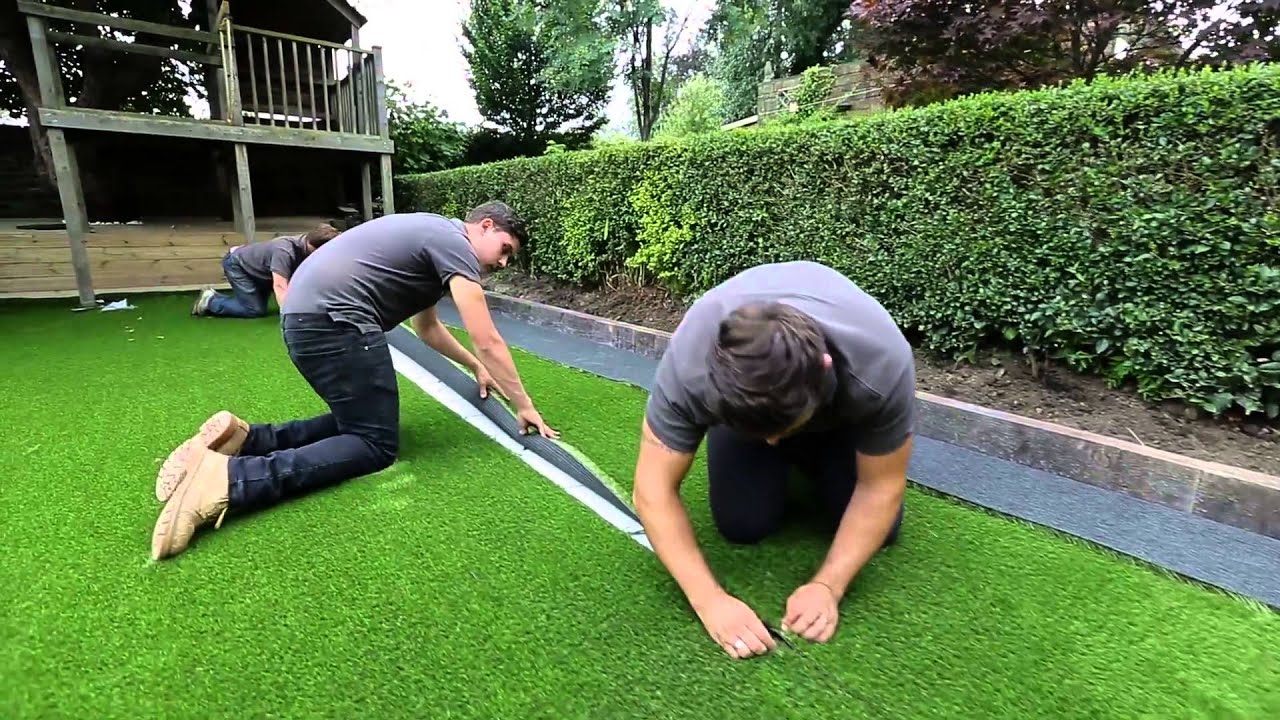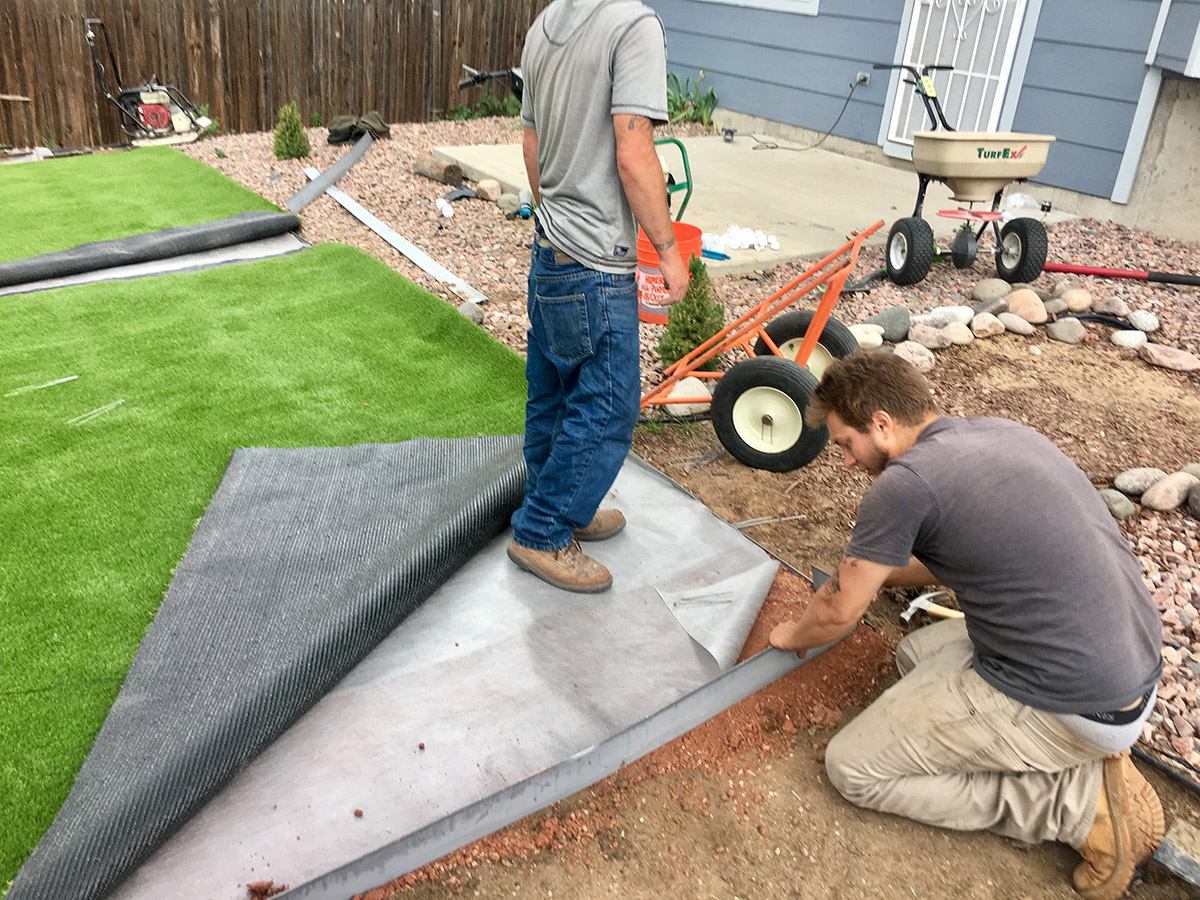Look Into the Environmental Benefits of Opting for Synthetic Grass Solutions
The fostering of synthetic grass services presents an engaging chance to address pushing environmental difficulties. By dramatically decreasing water use and lessening the application of harmful chemicals, these alternatives not only advertise lasting landscape design however likewise safeguard regional ecosystems. The lower carbon footprint linked with reduced upkeep activities contributes to an extra sustainable strategy to land administration. Nonetheless, the implications of these advantages extend beyond plain preservation efforts, increasing inquiries about their long-lasting influence on habitat conservation and overall ecological equilibrium. Exploring these measurements exposes a complex interplay worth thinking about.
Water Preservation Conveniences
One of the most significant benefits of man-made grass is its ability to preserve water. In comparison, synthetic turf does not require watering, substantially decreasing the overall demand for water sources.
By eliminating the requirement for regular watering, synthetic grass adds to sustainable landscape techniques and helps minimize the environmental influence of excessive water usage. The conservation of water prolongs to the decrease of overflow, which can lead to dirt erosion and waterway contamination.
Additionally, the installation of synthetic grass permits districts and homeowners to assign water sources more successfully, focusing on vital uses such as drinking water and agriculture. The shift towards artificial grass not just advertises liable water use but likewise straightens with more comprehensive ecological objectives focused on protecting natural deposits.
As neighborhoods significantly prioritize sustainability, the water conservation benefits of artificial turf present a compelling situation for its adoption in business and household landscape design tasks.
Reduced Chemical Use
The transition to synthetic grass considerably reduces the reliance on chemical treatments commonly made use of in all-natural lawn upkeep. Standard grass administration commonly includes the application of fertilizers, herbicides, and pesticides to advertise development and control bugs. These chemicals can position threats to human wellness, local wildlife, and the atmosphere, adding to soil and water contamination.
In contrast, man-made turf removes the need for these harmful materials. By lessening the release of synthetic substances into the ecological community, synthetic lawn promotes much healthier dirt and water systems.
Additionally, the absence of chemical overflow related to synthetic grass installations aids protect regional rivers from pollution, supporting marine life and maintaining biodiversity. Artificial turf companies phoenix. As areas progressively prioritize lasting techniques, choosing artificial grass provides a sensible solution that lines up with ecological preservation objectives. Through this change, residential property proprietors can enjoy lush eco-friendly areas without endangering ecological health, paving the way for an extra lasting future
Reduced Carbon Impact

Moreover, the installment of fabricated turf can cause significant water conservation. Natural lawns need substantial quantities of water for watering, which not just contributes to the carbon footprint connected with water removal and therapy however likewise pressures local water resources. In contrast, artificial turf needs minimal maintenance, needing no watering, consequently dramatically reducing water usage and its associated energy costs.
Additionally, the longevity of artificial turf contributes to its reduced carbon impact. With a life-span of up to 15 years or more, the demand for constant substitutes is decreased, leading to less waste and lower power usage in manufacturing and taking care of traditional grass choices. On the whole, fabricated lawn provides a lasting alternative for environmentally aware landscape useful source design.
Environment Preservation
Habitat conservation is a vital factor to consider in the discussion over landscaping options, particularly when contrasting fabricated grass to all-natural turf. All-natural turf lawns frequently call for considerable maintenance, consisting of making use of pesticides, plant foods, and herbicides, which can detrimentally impact neighborhood ecological communities. These chemicals can seep into the dirt and waterways, damaging native vegetation and fauna and disrupting regional habitats.
Fabricated grass removes the requirement for damaging chemicals, consequently protecting close-by wild animals and preserving the integrity of bordering ecological communities. The setup of synthetic lawn can lead to the go right here conversion of previous grass locations into even more biodiverse landscapes, such as pollinator gardens or indigenous plant locations, which can support local wild animals.
Eventually, the change to man-made lawn not just saves water and decreases upkeep initiatives yet also cultivates a more harmonious partnership between human activities and the all-natural setting, advertising habitat conservation while doing so.
Long-Term Sustainability
Long-lasting sustainability is an important consider examining the benefits of synthetic turf over typical grass yards. Among one of the most considerable benefits of synthetic grass is its durability; it can last up to 15-20 years with very little maintenance, whereas all-natural grass calls for regular reseeding and replacement. This durability reduces the demand for consistent sources, such as water, fertilizers, and pesticides, which are essential for maintaining a healthy and balanced yard yard.
Additionally, synthetic grass contributes to a reduction in carbon discharges associated with lawn treatment devices. Traditional yards typically call for gas-powered mowers, leaners, and blowers, all of which add to air contamination. Turf installation phoenix az. On the other hand, man-made lawn eliminates the demand for such equipment, advertising a cleaner atmosphere
In addition, the production of synthetic grass increasingly utilizes recycled materials, improving its sustainability account. As manufacturers take on environment-friendly techniques, the environmental footprint of synthetic grass continues to reduce.

Final Thought
The fostering of synthetic grass remedies presents substantial ecological advantages, consisting of significant water preservation, minimized reliance on harmful chemicals, and a reduced carbon footprint. Furthermore, fabricated grass help in protecting natural habitats by lessening land disruption and promoting lasting sustainability through making use of resilient materials. Collectively, these factors highlight the capacity of artificial turf to contribute favorably to environmental health and offer a sensible choice to typical landscape design practices in a progressively resource-conscious globe.
In comparison, fabricated grass does not require watering, significantly minimizing the overall demand for water resources. By his response reducing the launch of artificial substances right into the community, fabricated turf promotes healthier soil and water systems.
Moreover, the setup of man-made lawn can result in significant water preservation. In comparison, artificial grass requires marginal upkeep, calling for no watering, therefore dramatically minimizing water use and its linked power expenses.

Comments on “Durable Arizona Artificial Turf for Residential and Commercial Applications”